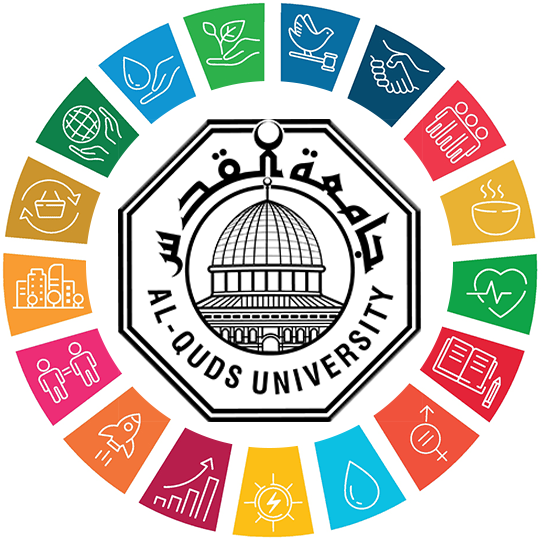Al-Quds University Wastewater Plant
In any case, the problems revolving around water scarcity and water pollution make the need for effective water management and wastewater treatment all the more necessary. Al-Quds University is under the leadership and management of Dr. Jawad Hasan Shoqeir (jhassan@staff.alquds.edu) and is part of innovative efforts to implement a wastewater treatment system that will help the university meet their goal of zero water consumption. These efforts form a part of the university’s operational strategies sustainability and, more importantly, assist the university in contributing to the betterment of the environment, public health, and global sustainability.
Vision:
The innovative treatment process of the wastewater aims to intertwine several key objectives to underlie the vision of Al-Quds University. This includes the goal of providing the university with constant and dependable clean water and restoring the water for other uses. With the implementation of advanced treatment wastewater technologies, the university improves the quality of treated wastewater water, and will once again be reused for campus activities, including some and recreational and ornamental activities. This all is in concord with the vision of Al-Quds University to be the environmental conservation leader, and sustainable water use model.
In-depth Treatment Process:
Focusing on achieving secondary level treatment is a core part of the university wastewater treatment process. This level of treatment further reduces the organic matter after the primary treatment. Biological means of treatment advanced for aerobic systems aggregate decaying organic matter. This advanced treatment reduces the pollutant’s concentration in water before the university reuses it and during the final discharge. This process is one of the most advanced methods in achieving the university’s vision on water zero consumption to ensure the university’s operations can use a maximum volume of sanitized wastewater.
Alignment with Sustainable Development Goals (SDGs):
Al-Quds University wastewater treatment project covers several sustainable development goals, which indicate a desirable sustainable development situation for the. This is also referred to as the global sustainable development goals. These include:
- SDG 6 (Clean water and sanitation): Sustainable management of water and sanitation is an improvement of water quality and wastewater treatment for the university. The initiative also encourages water sanitation and the safe reuse of treated wastewater.
- For SDG 3 (Good Health and Well-being), the initiative’s effective treatment of wastewater off the site minimizes the potential public health risks associated with wastewater and helps prevent the spread of waterborne diseases. This also corresponds with the vision of ensuring healthy lives and promoting well-being for all.
- For SDG 11 (Sustainable Cities and Communities), the post-treatment wastewater use for beautification of the campus and irrigation aligns the university with the vision of sustainable urbanization and the enhancement of urban space.
- For SDG 12 (Responsible Consumption and Production), the use of post-treatment wastewater for irrigation aligns the university with responsible use of water and helps prevent the use of freshwater resources.
- For SDG 15 (Life on Land), effective treatment of wastewater helps the university prevent degradation of land, thus, protecting the land ecosystem and biodiversity.
University’s Role Beyond Treatment:
Al-Quds University also participates in sustainable use of water. The university is involved in water conservation and sustainability research and is continuously refining innovative processes to guide others in the sector. The university also invests in research on water conservation to develop educational materials for the community, thus promoting a culture of sustainability.
The wastewater treatment initiative being developed at Al-Quds University exemplifies the university’s values of commitment to sustainability, environmental stewardship, and public health. Emphasizing the role of academic institutions in tackling global issues, Dr. Jawad Hasan Shoqeir exemplifies dedication to building a more sustainable future. While we work toward our objective of zero water consumption, we seek innovations, partnerships, and learning opportunities in the water management and sustainability domain.
